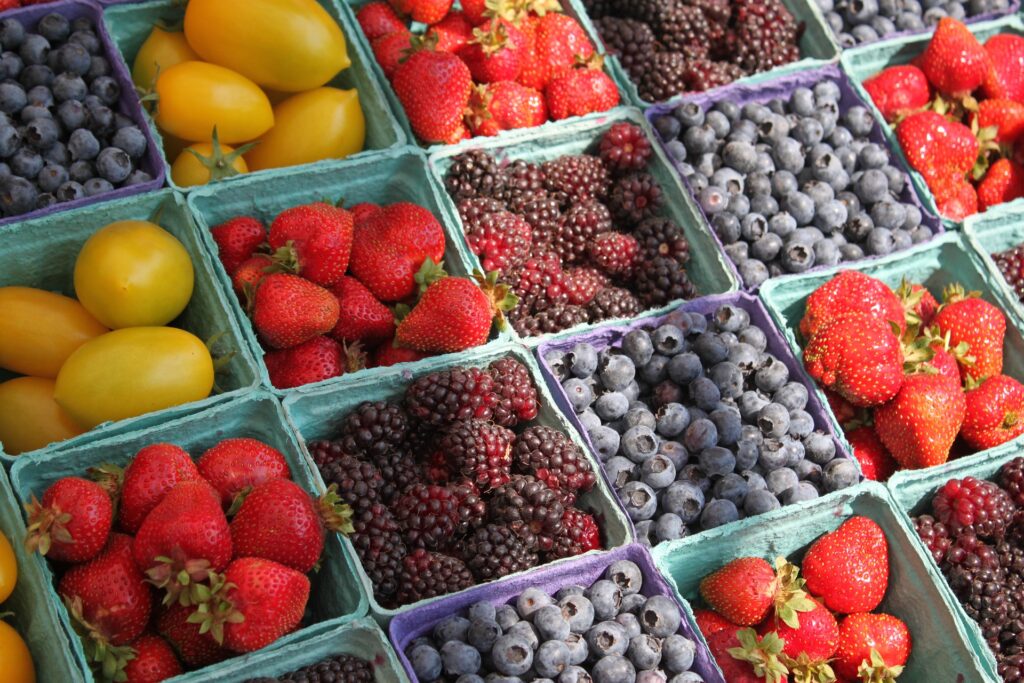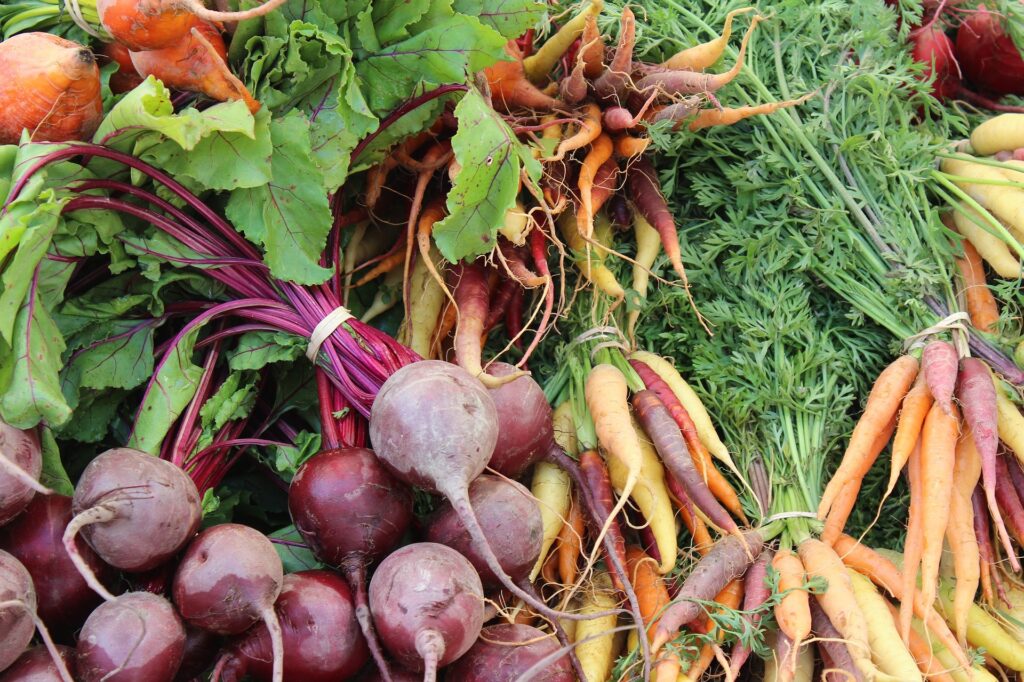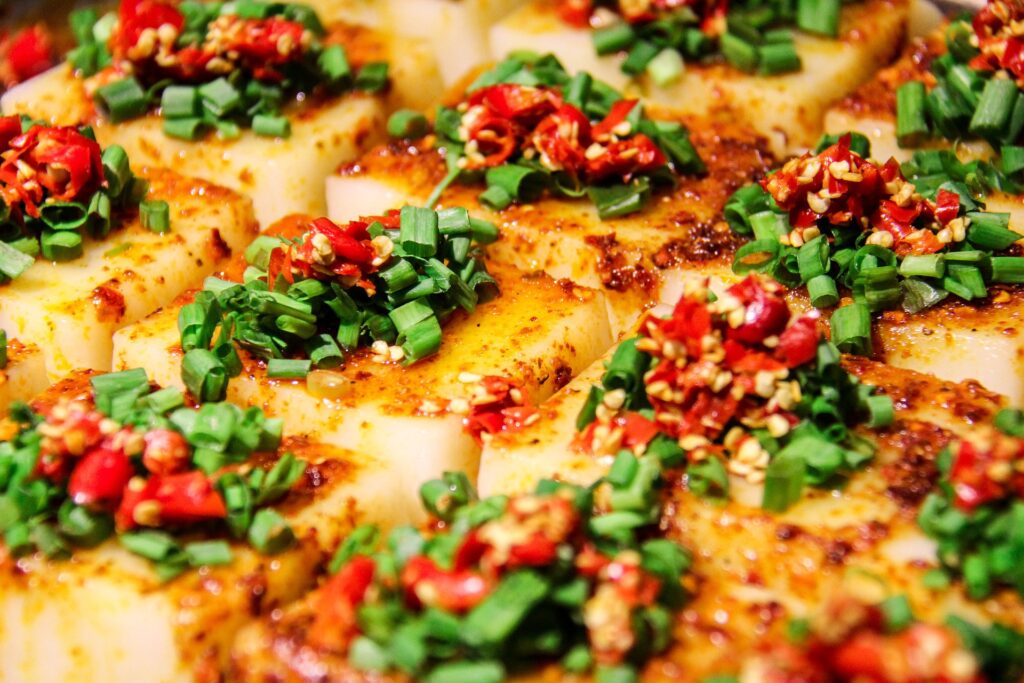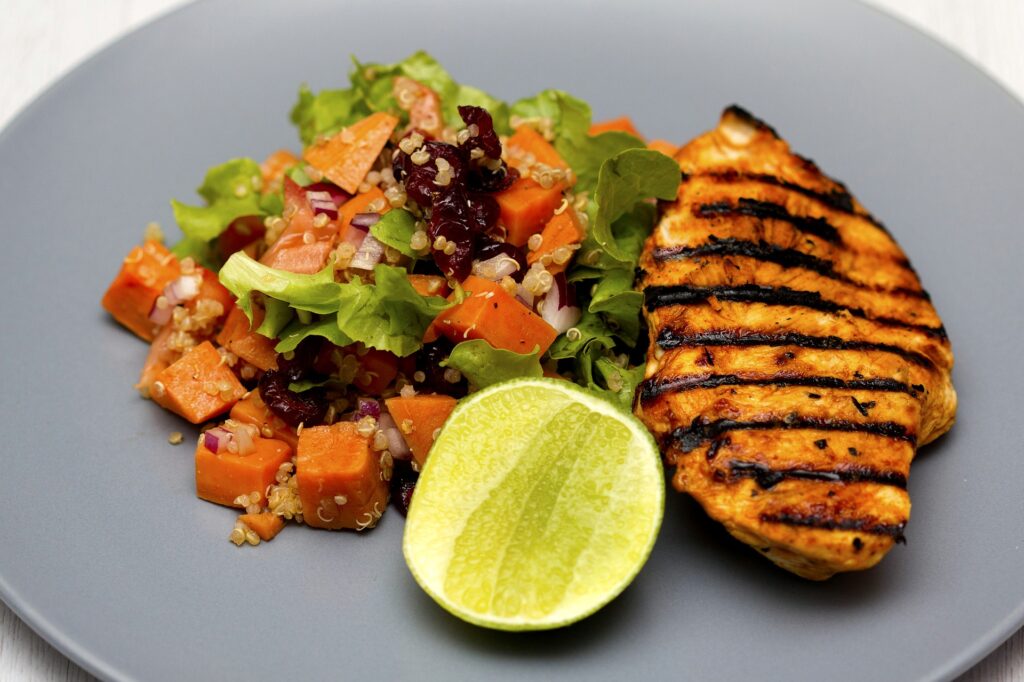 Photo: Pixabay
Photo: Pixabay
It's important to talk to your physician, psychiatrist, psychologist, and any other members of your care team before making any major dietary changes, especially if you have a serious mental health condition. Even if you're in good physical health, there are some foods that may impact prescription medications you take or have an impact on other health concerns, such as obesity. (Walnuts are a healthy and delicious snack, but they're not a low-calorie food, so be mindful of portion control!) Once you've gotten the go-ahead to adjust your diet, give these science-backed foods a try on their own or in one of our foodie-approved recipes.
| Depression-fighting Food | Serving Size* | Recipes to Try |
|---|---|---|
| Avocados | 1.7 oz. (about ⅓ of a medium avocado), 85 calories | |
| Bananas | 1 banana, 105 calories | |
| Beans | ½ cup, 50 - 100 calories (depending on variety) | |
| Beets | ½ cup cooked, 35 calories | |
| Carrots | ½ cup fresh, 25 calories | |
| Coffee | 8 fluid oz. brewed, 5 calories; 1 tbsp. whole beans, 20 calories | |
| Dark Berries | ½ cup fresh, 50 - 85 calories (depending on variety) | |
| Chia Seeds and Flaxseed | 1 oz. chia seeds, 140 calories; 1 oz. flaxseed, 150 calories | |
| Chicken Breast and Turkey Breast | 1 cup cooked chicken breast, 230 calories; 1 cup cooked turkey breast, 150 calories | |
| Dark Chocolate | 1 oz. plain dark chocolate, 155 calories (depending on cacao content) | |
| Dark Leafy Greens | 1 cup fresh/uncooked, 10 - 20 calories | |
| Fatty Fish | 3 oz. fresh/cooked, 110 - 155 calories (depending on variety) | |
| Garbanzo Beans (Chickpeas) | ½ cup cooked, 135 calories | |
| Kimchi and Sauerkraut | 1 cup kimchi, 25 calories; 1 cup sauerkraut, 25 calories | |
| Low-fat Dairy | Varies widely depending on product and fat content | |
| Oysters | 1 oz. without shells, 15 calories | |
| Sweet Potatoes | ½ cup baked without oil, 90 calories | |
| Tofu | ½ cup firm tofu, 65 calories | |
| Walnuts | 1 oz. without shells, 185 calories | |
| Whole Grains | Varies widely depending on product | |
| Yogurt | Varies widely depending on product and fat content |

Photo: Pexels
AvocadosA well-renowned superfood, avocados are a great source of monounsaturated fats (what doctors and nutritionists call “healthy fats”) as well as dozens of vitamins and minerals. One of its superstar nutrients is folate, which can be helpful in fighting depression, especially when consumed through food sources rather than supplements.
Recipes to Try: Chickpea Stuffed Avocado with Grapes and Red Quinoa, Avocado Egg Boats, Avocado-banana Smoothie
Bananas
Bananas naturally contain serotonin, a neurotransmitter that helps stabilize mood. This fruit is also rich in potassium, low levels of which have been associated with depression and other mental health disorders.
Recipes to Try: Homemade Baked Banana Chips, 3-Ingredient Peanut Butter Banana Bars, One-ingredient Banana Ice Cream (4 Flavors)
Beans
Beans and other legumes, like lentils and peas, are great for gut health, which is essential for emotional health. They also contain polyphenols, antioxidants that offer many of the same mental-wellness benefits of exercise.
Recipes to Try: Black Bean Burrito with Guacamole, Fiesta Mexican Rice and Pinto Beans, White Bean Ragout
Beets
Filled with folate, beets can help those who are lacking in this nutrient, which has been scientifically tied to mood. It also contains B vitamins, which can help balance mood.
Recipes to Try: Green Salad with Oranges, Beets, and Avocado, Roasted Beets with Chiles, Ginger, Yogurt, and Indian Spices, Strawberry Ginger Beet Sorbet

Photo: Pixabay
CarrotsCarrots do way more for the body than improve eye health. Their high levels of beta carotene, an antioxidant, are a natural mood enhancer.
Recipes to Try: Balsamic Grilled Carrot Dogs, Carrot Tahini Salad, Cleansing Cucumber Carrot Juice
Coffee
When prepared mindfully, coffee is an antioxidant-rich way to instantly boost energy and lift the spirit. Opt for black coffee if you can, or at least keep added sweeteners and full-fat dairy additives to a minimum to receive the most health benefits. Also be sure not to drink it in excess — its high-caffeine content can impact your sleep cycle (especially if consumed too late in the day), which can worsen depression symptoms. If you’re not a coffee drinker, you can reap the bean’s benefits by adding it to food dishes, but it’s still important to be mindful of when you consume it.
Recipes to Try: Carrots Slow-baked on Coffee Beans, Grilled Coffee-rubbed Steak, Coffee Orange Granola
Dark Berries
Whether fresh, frozen, or dried, blueberries, strawberries, cherries, and cranberries are rich in antioxidants. They’re also a healthy, natural way to indulge your sweet tooth and enjoy a sugary pick-me-up.
Recipes to Try: Fresh Strawberry Smoothies, Blueberry Sauce for Grilled Beef Steaks or Tenderloin, Roasted Cranberry Balsamic Chicken Thighs
Chia Seeds and Flaxseed
Small but powerful, chia and flaxseed contain high levels of omega-3s, a fatty acid that helps boost the brain’s ability to produce serotonin, which helps regulate mood. Omega-3s also help reduce inflammation throughout the body, which has been linked to helping alleviate symptoms of depression.
Recipes to Try: Chia Pudding with Dried Apricots and Pineapple, Lemon Flaxseed Muffins, Caesar Dressing with Flaxseed
Chicken Breast and Turkey Breast
Meat from chicken and turkey breast is a lean source of protein, a building block for muscles and the brain. Poultry also contains tryptophan, which helps produce mood-regulating serotonin. Tryptophan has a reputation for making you sleepy, and although that’s not entirely accurate (an overly-full belly is usually to blame for post-Thanksgiving dinner fatigue), it can be helpful in helping you adopt a healthier sleep pattern by helping produce melatonin.
Recipes to Try: Lemon Chicken Romano, Mediterranean Smothered Chicken, Healthy Quinoa and Ground Turkey Stuffed Peppers

Photo: Pexels
Dark ChocolateAntioxidant-rich dark chocolate has long been praised as a healthy treat, even when it comes to emotional wellness. Cocoa beans are chock-full of flavonoids, which can help improve mood by reducing inflammation and improving brain function. Just be sure to indulge in dark chocolate with high levels of cacao (most nutritionists recommend 60 percent or higher) — milk, white, and flavored chocolate don’t offer the same benefits.
Recipes to Try: Frozen Banana Bites, Asado de Bodas (Pork in Red Chile Sauce), Single-serve Microwave Chocolate Cake Muffin
Dark Leafy Greens
All veggies have a variety of health benefits, but dark leafy greens, like spinach, kale, and Brussels sprouts, are especially beneficial when it comes to giving your mental health a boost. They’re rich in folate and B vitamins, deficiencies of which have been linked to mood disorders.
Recipes to Try: One Pot Spinach Rice, Crispy, Baked Kale Chips, Oven-roasted Brussels Sprouts with Honey Balsamic Glaze
Fatty Fish
Oily fish seems like a decadence because of its rich flavor, but adding a few servings a week can be a boon for those suffering from mental health disorders. Fresh (not canned) salmon, tuna, and sardines contain high levels of omega-3 fatty acids, which offer anti-inflammatory benefits.
Recipes to Try: Perfectly-baked Salmon with Lemon and Dill, Lime Chili Marinated Tuna Steaks, Moroccan Baked Whole Sardines
Garbanzo Beans (Chickpeas)
A favorite among plant-based vegetarian and vegan foodies, garbanzo beans, also called chickpeas, are loaded with folate, which helps lift mood. They’re also a great source of protein, which helps build lean muscle and give you a healthy boost of energy.
Recipes to Try: Roasted Cauliflower and Chickpea Soup, Chickpea Salad with Ground Flax Dressing, Thai Chickpea “Meatballs” with Ginger Lime Zucchini Noodles and Peanut Sauce
Kimchi and Sauerkraut
Fermented foods, like kimchi (pickled vegetables that are popular in Korean cuisine) and sauerkraut (pickled cabbage) contain probiotics, which play a key role in gut health. Serotonin, a chemical mood-regulator, is produced in both the brain and the gut, so the better your belly functions, the better you’ll feel inside and out.
Recipes to Try: Easy Homemade Sauerkraut, Simple Kimchi, Sausage, Sauerkraut, and Pepper Bake
Low-fat Dairy
Low-fat dairy offers many of the same benefits of lean protein. It also contains vitamin D, which may help boost the amount of neurotransmitters in the brain, an important way to stabilize mood. In addition to low-fat options, go for unsweetened versions as often as possible.
Recipes to Try: Strawberry Frozen Yogurt Bars, Skinny Chicken Fettuccine Alfredo, Easy Lemon Ricotta Pancakes
Oysters
They’re often considered an aphrodisiac, but oysters are a great dietary addition for mood enhancement for those not looking for love. These shellfish contain high levels of zinc, a key mineral for boosting cognitive function, including mood regulation.
Recipes to Try: Oyster and Corn Chowder, Oysters with Balsamic, Unfried Oysters
Sweet Potatoes
Sweet potatoes are filled with nutrients, including beta carotene, fiber, and vitamin A. It’s also a great source of magnesium, which is a natural way to fight off feelings of anxiety and can even help regulate your sleep cycle.
Recipes to Try: Mexican Sweet Potato Hash with Black Beans and Spinach, Sweet Potato and Chickpea Salad, Spicy Stuffed Sweet Potatoes

Photo: Pixabay
Tofu
If you’re on a plant-based diet, you’re probably no stranger to tofu. Adding this soybean-based protein to your plate is a great way to battle symptoms of depression, thanks to its probiotic powers that help improve gut — and therefore, brain — health.
Recipes to Try: Crispy Baked Tofu Nuggets, Tofu and Broccoli Stir Fry, Sweet and Sour Tofu
Walnuts
Walnuts have recently become the new nut superstar. In addition to protein, they contain high levels of omega-3 fatty acids, healthy fats that help reduce high levels of inflammation that may worsen symptoms of depression.
Recipes to Try: Walnut-crusted Chicken Breasts, Pizza Noci e Zucchini (Walnut Pesto and Zucchini Pizza), Five-minute Healthy Chunky Monkey Ice Cream
Whole Grains
The complex carbohydrates found in whole-grain foods, like brown rice, quinoa, and whole-grain pasta, digest more slowly than simple carbohydrates, like those found in pastries and white bread. This helps you feel fuller longer and gives you more energy. Whole grains also have naturally-low sucrose levels, which helps stabilize blood sugar and regulate mood.
Recipes to Try: 3-Ingredient Homemade Whole-wheat Pasta, Seeded Whole-grain Breakfast Bread, Toasted Brown Rice with Mushrooms and Thyme
Yogurt
Yogurt contains probiotics that promote better gut health, which helps your body produce higher levels of serotonin, a mood-stabilizing brain chemical. Even vegan yogurt made from ingredients like coconut, soy, and almonds contains probiotics. Whether dairy- or plant-based, look for versions that are low in cholesterol and added sugar.
Recipes to Try: Tropical Yogurt Breakfast Parfait, Crab Cakes on Mixed Greens with Peanut Vinaigrette, Healthy Greek Yogurt Chicken Salad

Photo: Pixabay
Foods to Avoid if You Have Depression
There are also ingredients that can worsen symptoms of depression and other mental health issues. You don’t have to completely eliminate these foods from your diet — many are good for you when consumed in moderation, and designating dishes as totally off-limits is frustrating and can drain your mood. However, reducing your intake of these components may help you feel better physically and emotionally:| Alcohol | Fried food | Simple carbohydrates |
| Animal-based fat | Processed meat | Soda |
| Artificial sweetener | Processed snack food | Trans fat / Hydrogenated oil |
| Caffeine | Salt / Sodium | White sugar |
However, whether you go for fresh, canned, organic, or inorganic, these foods may provide significant relief if you’re suffering from depression or other mental health conditions. Consider speaking with your healthcare providers about using these mood-boosting foods as a supplement in your emotional wellness regimen.
